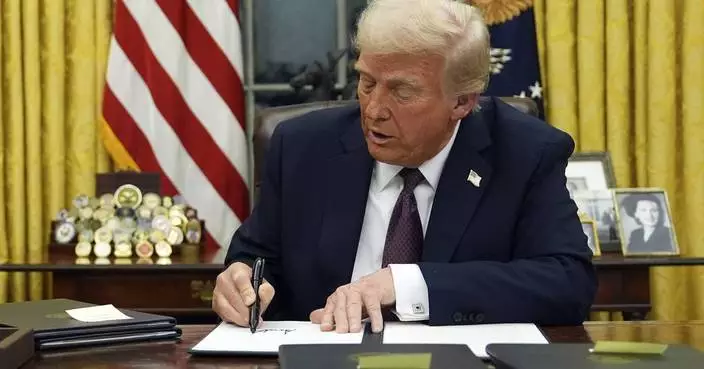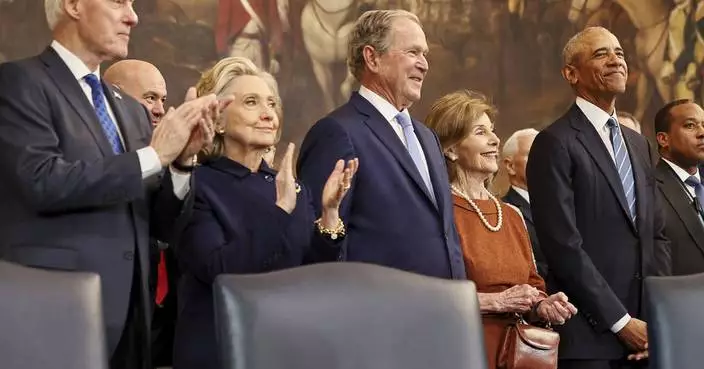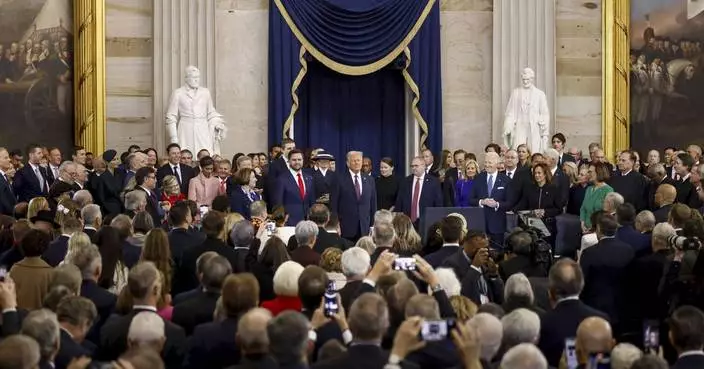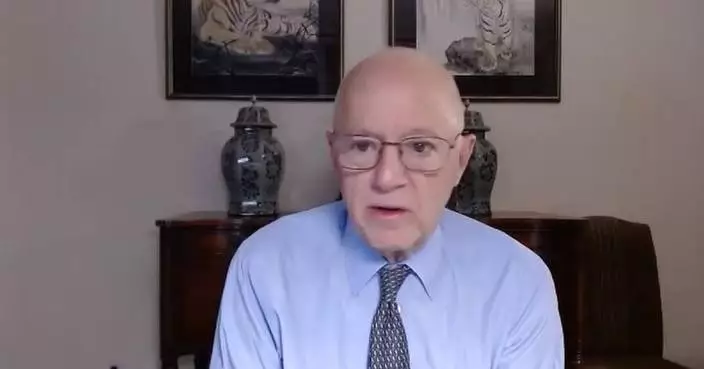MUNICH, Germany (AP) — Germany forward Thomas Müller announced his retirement from international soccer on Monday after a 14-year career that included the 2014 World Cup title.
The 34-year-old Bayern Munich striker played 131 times for his country, scoring 45 goals.
“It always made me very proud to play for my country. We celebrated together and sometimes shed a tear together,” he said in a video posted on YouTube. “I would like to say thank you to all the fans and my Germany teammates for their support over the years. Take the enthusiasm and joy of this year’s Euros with you.”
Müller's final appearance for Germany was as a substitute in the host nation's quarterfinal loss to eventual Euro 2024 winner Spain.
Müller's international debut came in 2010 in a 1-0 loss to Argentina. He played in four World Cups and four European Championships.
Fellow veteran Tony Kroos retired from all soccer after Euro 2024, leaving Germany without two of its most experienced players going forward.
AP soccer: https://apnews.com/hub/soccer

FILE - Germany's Thomas Mueller, right, celebrates during the Group A match between Germany and Scotland at the Euro 2024 soccer tournament in Munich, Germany, Friday, June 14, 2024. Germany forward Thomas Müller has announced his retirement from international soccer after a 14-year career that included the 2014 World Cup title. (Christian Charisius/dpa via AP, File)

Germany's Thomas Mueller, left, challenges Spain's Aymeric Laporte during a quarter final match between Germany and Spain at the Euro 2024 soccer tournament in Stuttgart, Germany, Friday, July 5, 2024. (AP Photo/Manu Fernandez)

Germany's Thomas Mueller, left, and Spain's Rodri vie for the ball during a quarter final match between Germany and Spain at the Euro 2024 soccer tournament in Stuttgart, Germany, Friday, July 5, 2024. (AP Photo/Matthias Schrader)
President Donald Trump moved to end a decades-old immigration policy known as birthright citizenship when he ordered the cancellation of the constitutional guarantee that U.S.-born children are citizens regardless of their parents’ status.
Trump's roughly 700-word executive order, issued late Monday, amounts to a fulfillment of something he's talked about during the presidential campaign. But whether it succeeds is far from certain as attorneys general in 18 states and two cities challenged the order in court on Tuesday, seeking to block the president.
Here's a closer look at birthright citizenship, Trump's executive order and reaction to it:
Birthright citizenship means anyone born in the U.S. is a citizen, regardless of their parents' immigration status. People, for instance, in the United States on a tourist or other visa or in the country illegally can become the parents of a citizen if their child is born here.
It's been in place for decades and enshrined in the 14th Amendment to the Constitution, supporters say. But Trump and allies dispute the reading of the amendment and say there need to be tougher standards on becoming a citizen.
The order questions that the 14th Amendment extends citizenship automatically to anyone born in the United States.
The 14th Amendment was born in the aftermath of the Civil War and ratified in 1868. It says: “All persons born or naturalized in the United States and subject to the jurisdiction thereof, are citizens of the United States and of the State wherein they reside.”
Trump's order excludes the following people from automatic citizenship: those whose mothers were not legally in the United States and whose fathers were not U.S. citizens or lawful permanent residents; people whose mothers were in the country legally but on a temporary basis and whose fathers were not citizens or legal permanent residents.
It goes on to bar federal agencies from recognizing the citizenship of people in those categories. It takes effect 30 days from Tuesday, on Feb. 19.
The 14th Amendment did not always guarantee birthright citizenship to all U.S.-born people. Congress did not authorize citizenship for all Native Americans born in the United States, for instance, until 1924.
In 1898 an important birthright citizenship case unfolded in the U.S. Supreme Court. The court held that Wong Kim Ark, who was born in San Francisco to Chinese immigrants, was a U.S. citizen because he was born in the country. After a trip abroad, he had faced denied reentry by the federal government on the grounds that he wasn't a citizen under the Chinese Exclusion Act.
But some advocates of immigration restrictions have argued that while the case clearly applied to children born to parents who are both legal immigrants, it’s less clear whether it applies to children born to parents without legal status.
Eighteen states, plus the District of Columbia and San Francisco sued in federal court to block Trump's order.
New Jersey Democratic Attorney General Matt Platkin said Tuesday the president cannot undo a right written into the Constitution with a stroke of his pen.
“Presidents have broad power but they are not kings,” Platkin said.
Not long after Trump signed the order, immigrant rights groups filed suit to stop it.
Chapters of the American Civil Liberties Union in New Hampshire, Maine and Massachusetts along with other immigrant rights advocates filed a suit in New Hampshire federal court.
The suit asks the court to find the order to be unconstitutional. It highlights the case of a woman identified as “Carmen," who is pregnant but is not a citizen. The lawsuit says she has lived in the United States for more than 15 years and has a pending visa application that could lead to permanent status. She has no other immigration status, and the father of her expected child has no immigration status either, the suit says.
“Stripping children of the ‘priceless treasure’ of citizenship is a grave injury,” the suit said. "It denies them the full membership in U.S. society to which they are entitled."
In addition to New Jersey and the two cities, California, Massachusetts, Colorado, Connecticut, Delaware, Hawaii, Maine, Maryland, Michigan, Minnesota, Nevada, New Mexico, New York, North Carolina, Rhode Island, Vermont, and Wisconsin joined the lawsuit to stop the order.
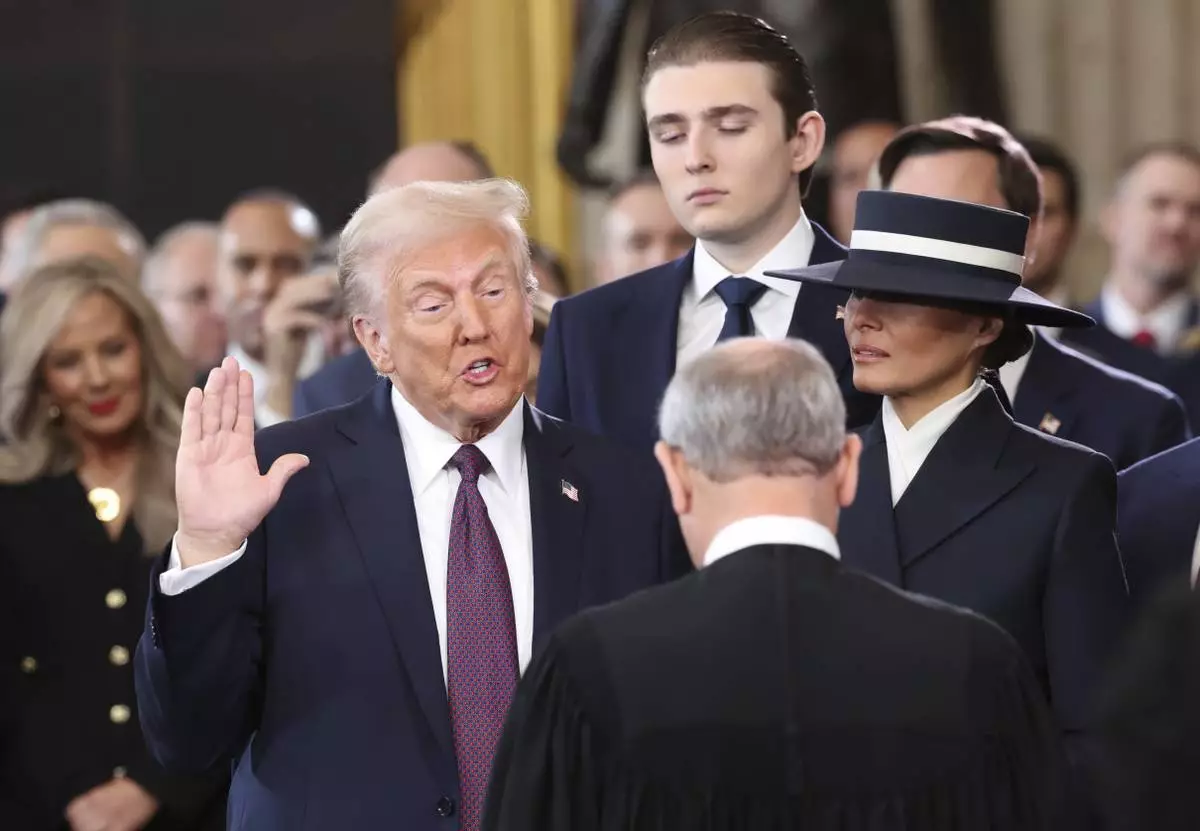
President-elect Donald Trump, from left, takes the oath of office as Barron Trump and Melania Trump watch at the 60th Presidential Inauguration in the Rotunda of the U.S. Capitol in Washington, Monday, Jan. 20, 2025. (Kevin Lamarque/Pool Photo via AP)
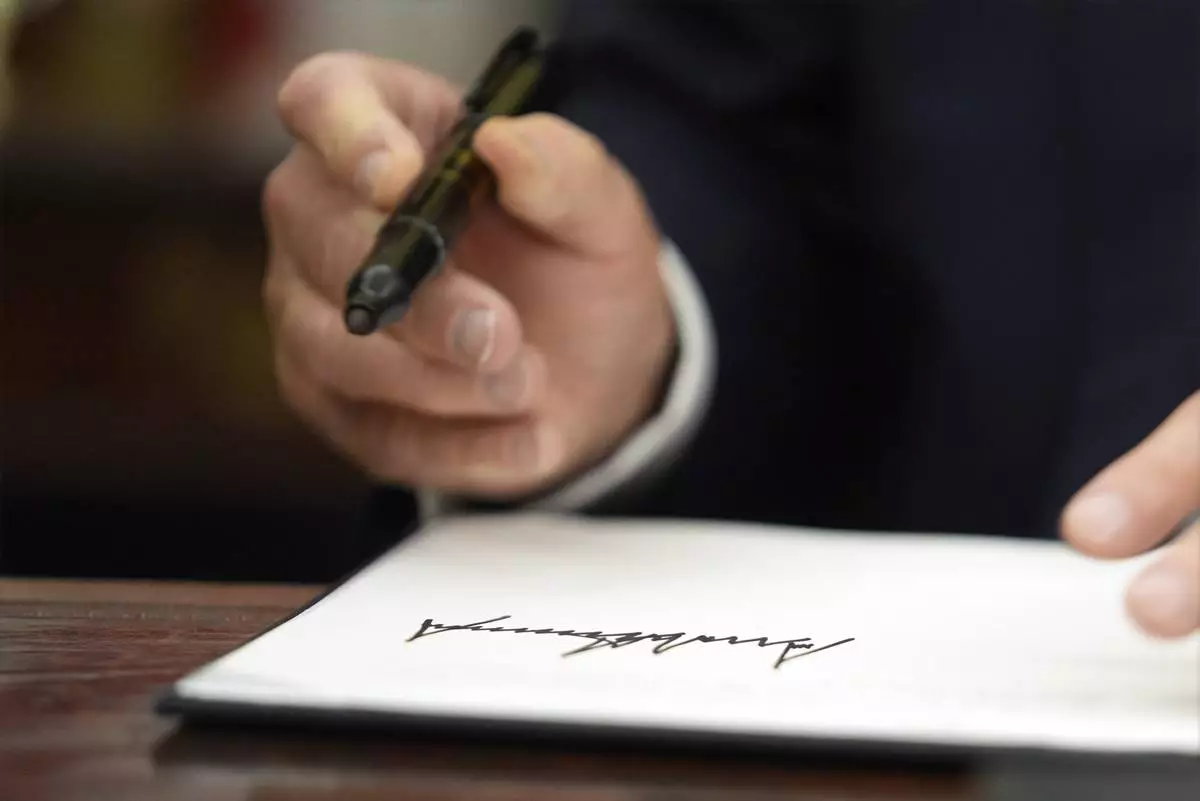
President Donald Trump signs executive orders in the Oval Office of the White House, Monday, Jan. 20, 2025, in Washington. (AP Photo/Evan Vucci)
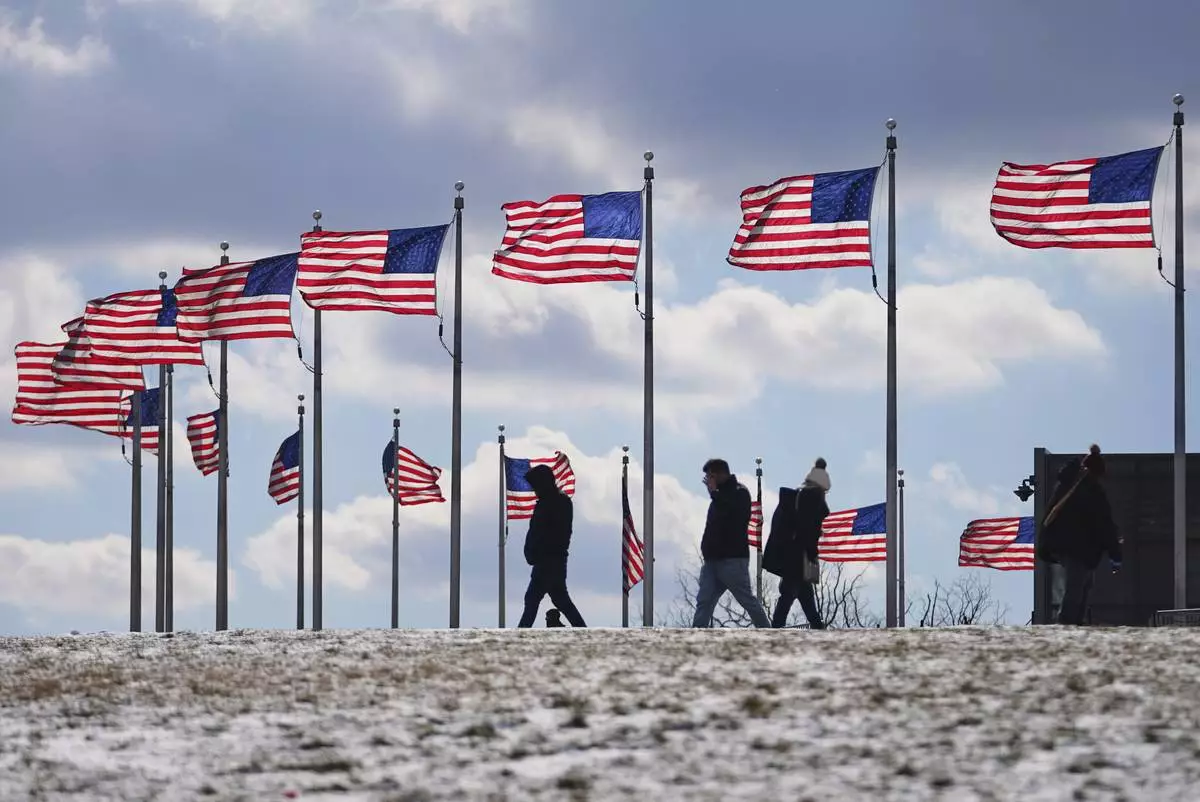
U.S. flags around the Washington Monument are at full staff during the 60th Presidential Inauguration, Monday, Jan. 20, 2025, in Washington. Flags are supposed to fly at half-staff through the end of January out of respect for former President Jimmy Carter, who died Dec. 29, 2024. (AP Photo/Julio Cortez)

A young man reacts to information on how to prepare for the upcoming changes to undocumented families living in the U.S., Sunday, Jan. 19, 2025, in Miami. (AP Photo/Marta Lavandier)
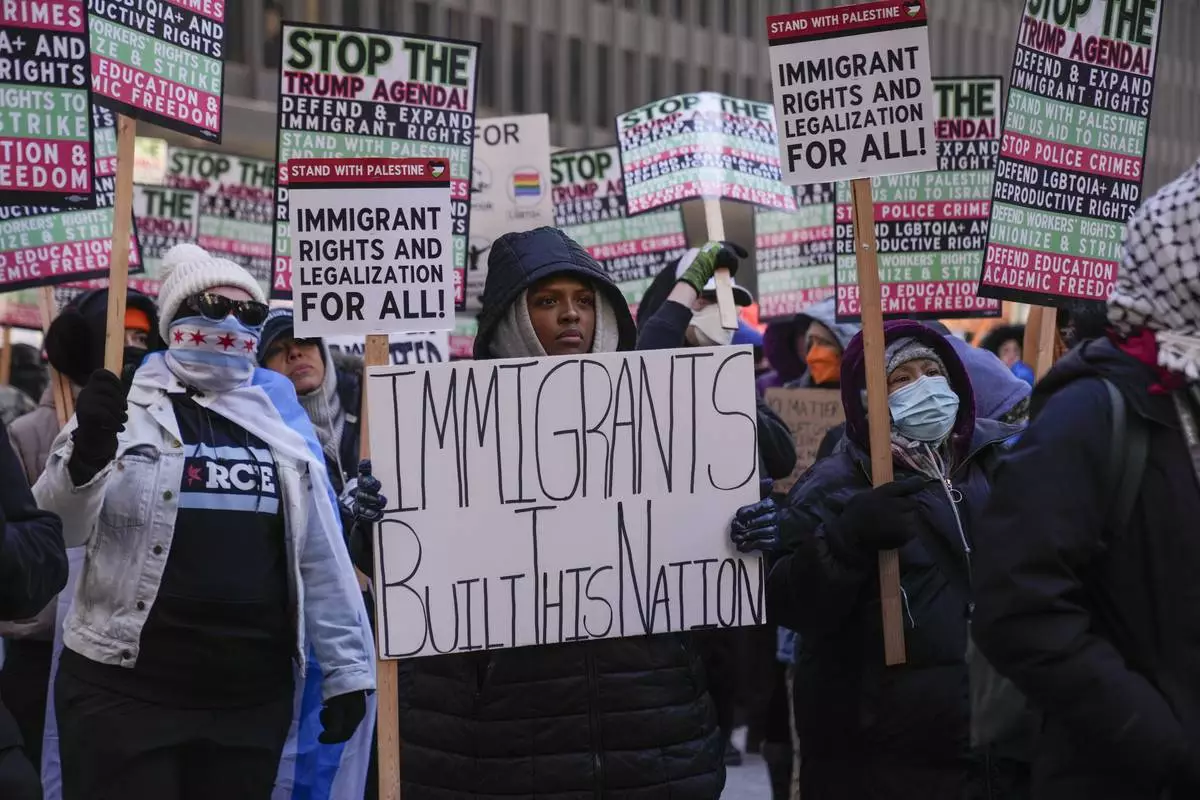
Sonia Rosa Sifore and other anti-Trump protesters gather in Federal Plaza to rally for a number of issues, including immigrant rights, the Israel-Hamas war, women's reproductive rights, racial equality and others, on the day of President Trump's Inauguration, Monday, Jan. 20, 2025, in Chicago. (AP Photo/Erin Hooley)
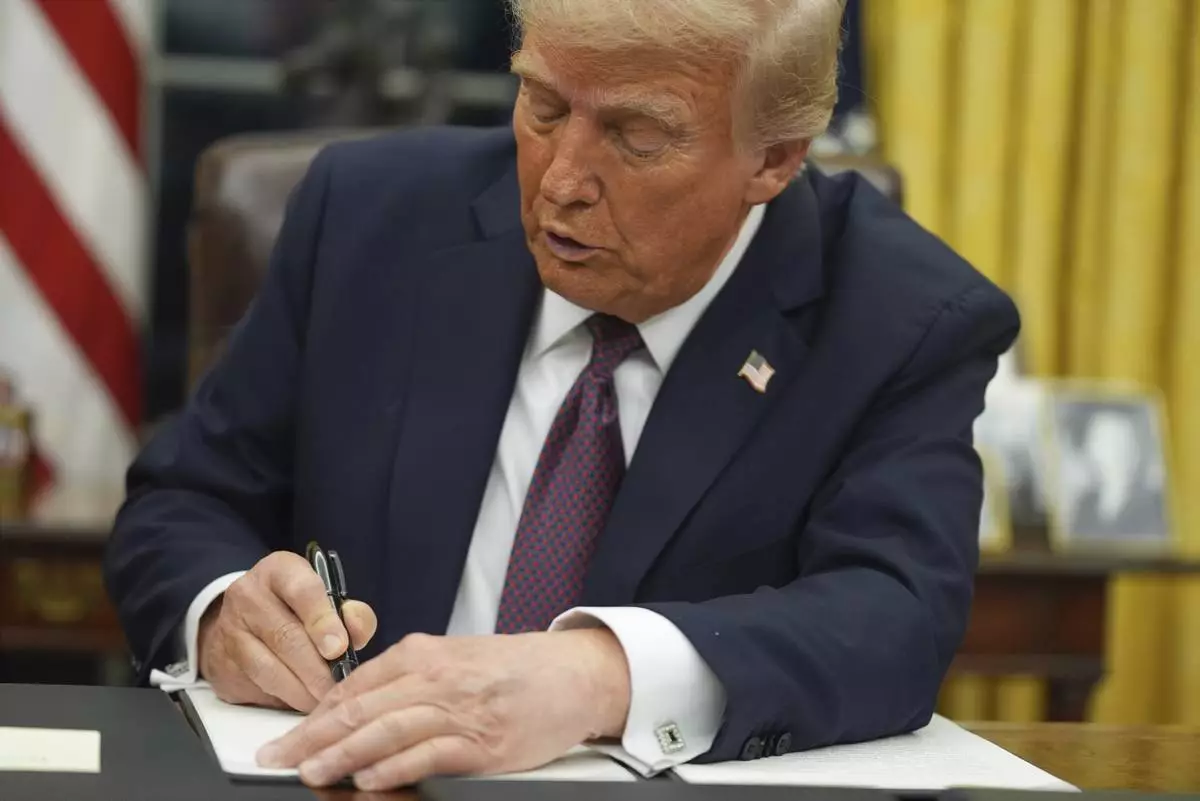
President Donald Trump signs an executive order on birthright citizenship in the Oval Office of the White House, Monday, Jan. 20, 2025, in Washington. (AP Photo/Evan Vucci)













